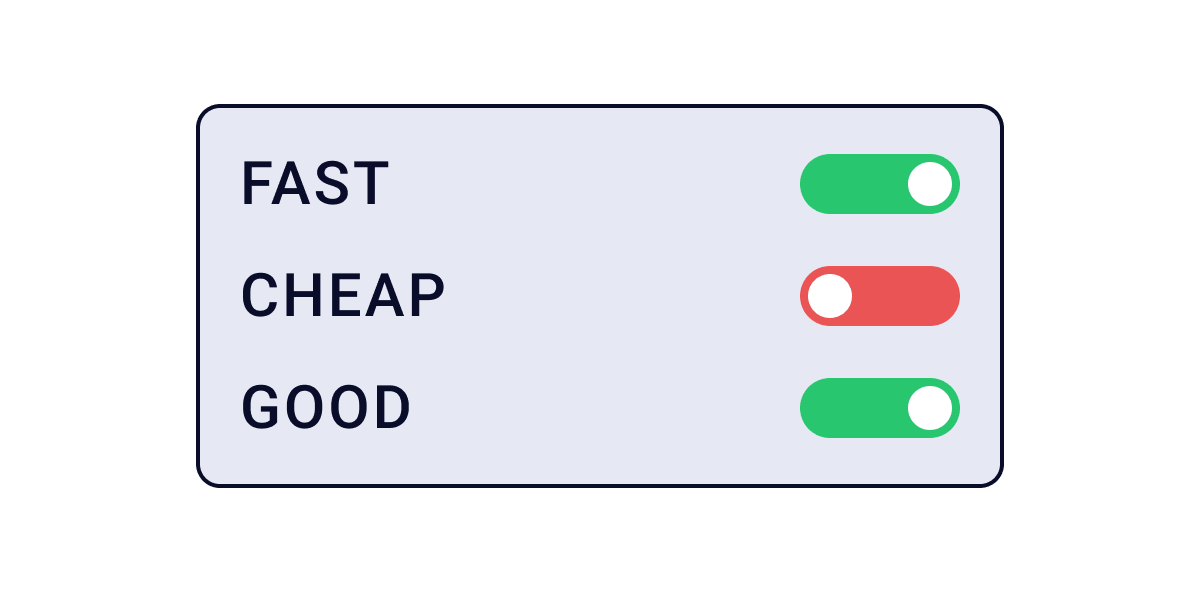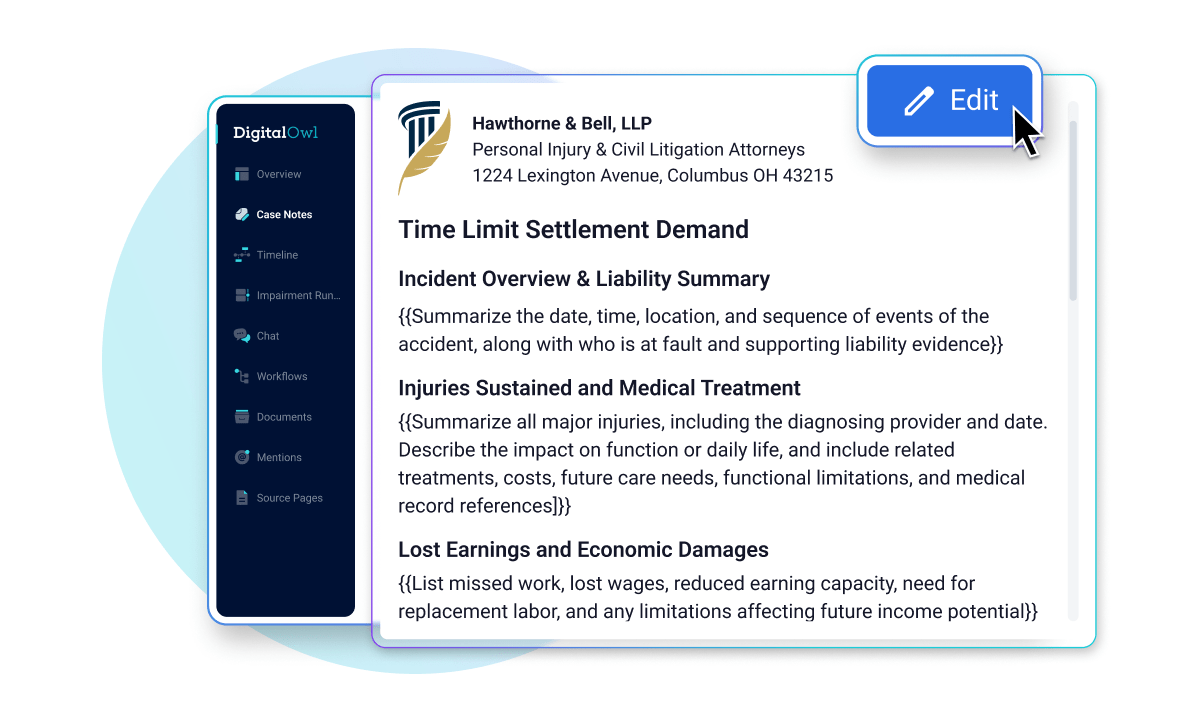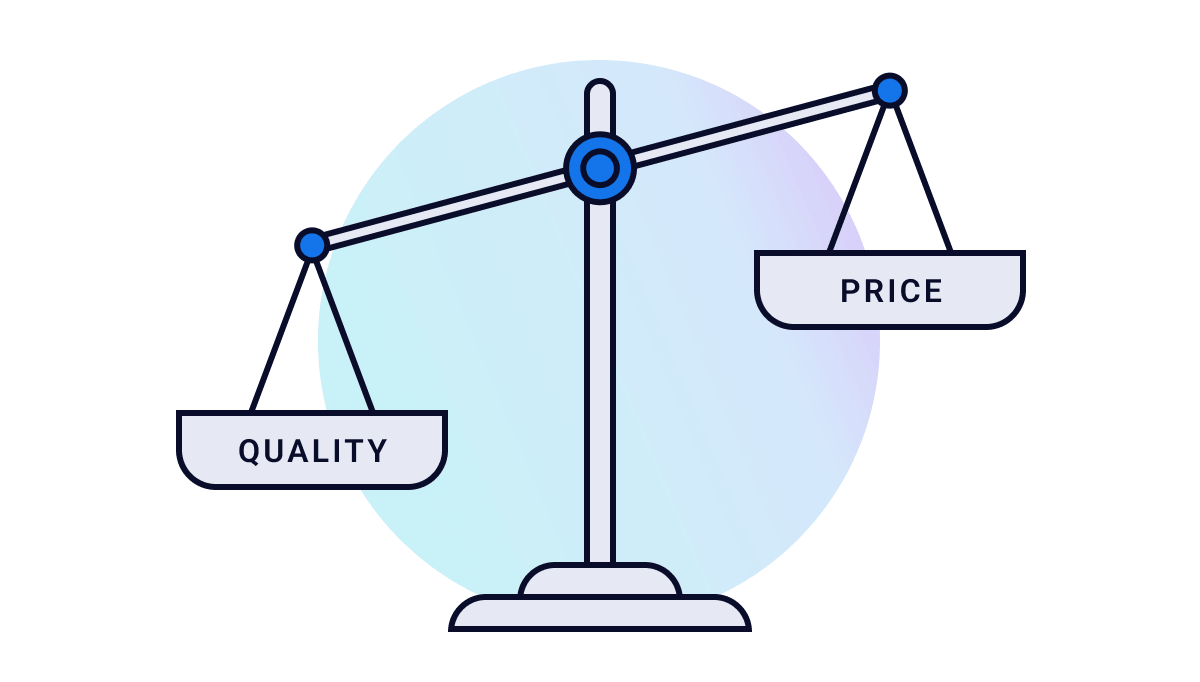

There are many factors to consider when choosing legal medical record chronology services for your firm. One of the first that often comes up is cost. Many law firms are looking for free or inexpensive solutions to time-consuming medical record reviews. That’s a valid concern, especially for small personal injury firms with limited budgets. But it’s important to recognize the other factors that go into the decision when finding the best medical record summary service for your team.
Many companies offer legal tech solutions, including Filevine, MedchronsTM by EvenUp, and DigitalOwl. So finding the right chronology service can be overwhelming. In this article, we’ll explore key factors that should shape your decision, and why investing in a higher-priced solution may actually save you money in the long run.
If all you’re looking for is a medical chronology or a simple medical record summary, it can be tempting to go with the cheapest option available. But open source or cheaper tools often mean generic.
For example, look at the free AI tools out there like Claude, Gemini, and ChatGPT. These are fine for general use, but they’re not specifically trained on medical data and they weren’t built for legal teams. That creates concerns around compliance, accuracy, transparency, and overall quality.

A low-quality medical record summary that requires extensive fact-checking or lacks traceable sources is no better than reviewing the medical records yourself. In fact, it’s worse. If you rely on unverified data, you could face legal or regulatory scrutiny. And if you don’t trust the AI medical record summary enough to skip manual checks, it’s not saving you time or money—it’s adding risk and potentially increasing costs.
Just look at the growing number of citations and fines hitting lawyers who rely on ill-suited AI tools in court and end up citing phantom case law. That’s a legal and reputational nightmare.
There are also budget-level medical chronology services. These are usually secure since most companies selling to law firms understand how important it is to protect personal and medical data. Still, don’t assume. You should verify they are HIPAA-compliant and SOC 2 Type II certified before sharing any of your clients’ medical or personal data with them.
At this level, what you're giving up is customization. These services often create generic medical record summaries that aren't built for the specific needs of legal professionals. Many rely on open-source AI, so you’re not getting much more than what’s already available to the public.
DigitalOwl is different. It’s purpose-built for personal injury attorneys to save time and complement the knowledge and expertise of your team. It’s designed to complement legal professionals, not replace them.
Their AI is proprietary and backed by a deep Medical Knowledge Base that adds real context to the data. Your legal team shouldn't need to be medical experts to understand the summaries provided by legal AI tools. DigitalOwl’s technology highlights what matters in a clear, human-readable format that makes it easy to see the critical details in medical records.
DigitalOwl’s AI medical record summaries are fully editable. Law firms can adjust the content, save templates, and create demand letters that match their internal style. Users can query records to pull in specific details and standardize outputs across the team.

Unlike generic legal medical record chronology tools that just list data, DigitalOwl connects the dots using specialized technology. Instead of simply reporting pain scores, the system identifies meaningful insights—such as whether a condition is worsening or affecting daily life. This is the level of clarity legal teams actually need to improve case outcomes and make decisions more efficiently.
Every insight is also backed by source documentation. With one click, users can see exactly where a piece of information came from with a Bates stamp. That level of traceability is built into the platform, which is essential in high-stakes legal and regulatory environments.
Customization isn’t just a nice-to-have. It directly impacts how efficiently your team can work and how well your outputs reflect your firm’s standards. With editable summaries, flexible templates, and the ability to query for specifics, DigitalOwl helps your firm:
Generic tools can’t support that level of control or customization. In fact, many don't allow for edits at all. This forces attorneys to choose between manually rewriting AI medical record summaries or accepting documents that don’t meet their firm’s standards for quality and consistency.
DigitalOwl isn’t a general-purpose tool that’s been rebranded for law. It was built with input from real legal professionals, including attorneys and case managers who understand what it takes to move a case forward.
DigitalOwl’s platform is built to provide your legal team with relevant medical data in a concise, structured format that supports the decision-making and expertise of legal professionals. It’s a legal AI tool that works the way your team does, instead of one that you’ll need to work around.

When evaluating medical record summary solutions, it’s easy to focus on price. But in practice, cheaper tools can cost you significantly in terms of time lost, added risk, and compromised medical outputs. Choosing a higher-value platform like DigitalOwl pays for itself. Here’s how:
Cheaper tools can cost you significantly in terms of time lost, added risk, and compromised medical outputs.
“I am more prepared using DigitalOwl than defense lawyers are,” said Peter Wilborn, Attorney at Wilborn Law. “DigitalOwl isn’t just about medical record summarization or links to the original documents. You can ask for the specific information you need, and their platform reorganizes the data to deliver it in a way that works for you.”
Try it for yourself. Upload your first case free today.
